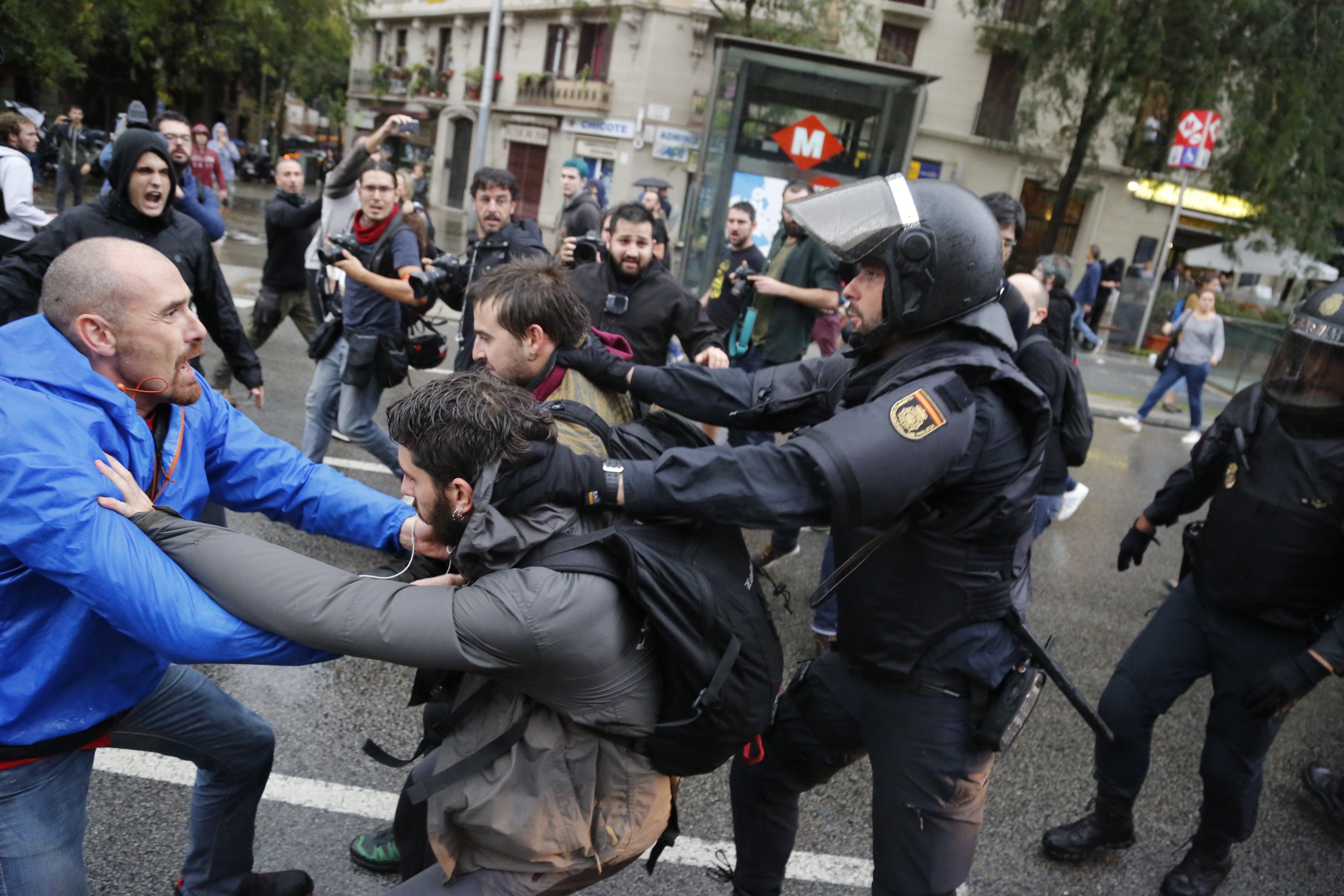Col·lectiu Praga and Drets, two associations of lawyers, have raised the questions of police violence during the 2017 Catalan referendum, the situation of the political prisoners and the violation of fundamental rights by Spain during the country's Universal Periodic Review (UPR) by the United Nations Human Rights Council. The move was announced in a statement this Friday. Every UN member state undergoes a UPR every four and a half years. This includes reviewing their respect for human rights and fundamental freedoms. 2020 will see Spain's third examination under the process.
What is the procedure?
Each of member states needs to submit a report it has prepared itself, a report prepared by the United Nations High Commissioner for Human Rights with contributions from civil society and reporting by NGOs from across the world in relation to the respect of human rights and fundamental freedoms in the UN member states.
The information provided, and discussed in a preliminary session with registered civil society associations, is collected by the member states for discussion in the review session. On the day of the review, the member state submits its report and answers to the advance questions that it has received, member states who wish to do so can speak and then a report is drafted and approved with recommendations that the state must follow in the coming years. Spain's review is expected to take place in the first quarter of 2020.
Four complaints of violation of rights by Spain
Col·lectiu Praga and Drets have made use of this mechanism to formulate four clear and concise allegations of rights violation by Spain. The first is based on the restriction of the rights of freedom of expression, assembly, association and free ideology in the imprisonment of and the charges against Jordi Cuixart and Jordi Sànchez.
The second, on the police violence during the referendum, which it characterises as inhumane and degrading treatment of the civilian population in violation of their individual and collective rights, as well as the lack of an investigation by Spanish authorities, the blocking of judicial investigations by the public prosecutor's office, and the prizes and promotions awarded by the Spanish state to those who carried out and directed the operation. It also denounces the attempt to start legal proceedings against the members of the public who reported the police action, in a clear attempt to dissuade them from proceeding.
Third, the spurious use of hate crime charges to dissuade citizens from criticism of and protests against police action in a clear violation of freedom of expression, as well as the non-derogation of the so-called ley mordaza ("gag law"), which included tripling the fines and sanctions for alleged lack of respect towards the state's security forces, also in clear violation of the freedom of expression.
The fourth, the blockade by judicial decisions to the normal functioning of the Catalan institutions, as well as the violation of the right to a fair trial by the irregularities seen during the trial in the Supreme Court.

